Group Leaders
Professor Erik Wapstra
Under construction…
Email: Erik.Wapstra@utas.edu.au
Associate Professor Geoff While
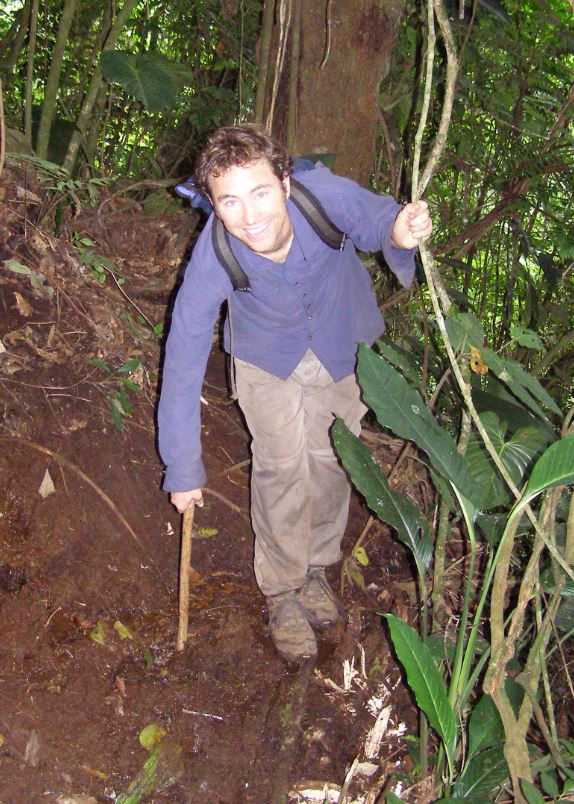
I have had a life-long interest in zoology culminating in a Bachelor of Science degree with first class honours from the University of Tasmania. I then undertook and completed my PhD (2004–2009), which documented the social and mating system of Liopholis whitii and the behaviours associated with sociality (e.g., birthing asynchrony, parental care, multiple mating). Following completion of my PhD, I was employed on an ARC funded project examining the ecological and evolutionary significance of maternal (thermal) effects. During this project I spent time at the University of Oxford, collaborating on a project examining colonisation dynamics in the introduced wall lizard. I moved to Oxford in 2011 to take up a Marie Curie Fellowship in which I explored the roles of sexual selection and hybridization in mediating diversification in the wall lizard. Following this fellowship, I returned to the UTAS to take up a lectureship in evolutionary ecology, during which time I have continued my wall lizard work (now in collaboration with the University of Lund). In January 2015 I was awarded an ARC DECRA fellowship to work on the evolutionary origins of family living.
I have a very broad range of interests within the fields of behavioural and evolutionary ecology, however, the majority of my research fits within the overriding theme of examining the links between ecologically induced short-term phenotypic change (with a particular focus on behaviour), population dynamics, and long-term evolution. To examine questions relating to this research topic, I try and take novel and integrated approaches which involve detailed long term field studies, large scale experimental manipulations, theoretical modelling and broad comparative and meta-analytical approaches. Ultimately this allows me to connect processes occurring across levels of biological organisation (from individuals to populations to species) to address fundamental questions in evolutionary biology. Current research research projects include the evolutionary origins of family living, the ecological and evolutionary consequences of species invasions, responses of organisms to global climate change, and the consequences of genetic exchange between species (e.g., hybridisation). Most importantly, much of this work requires expertise in the dark art of lizard wrangling.
Email: gwhile@utas.edu.au
Post Docs
Lu Fitzpatrick
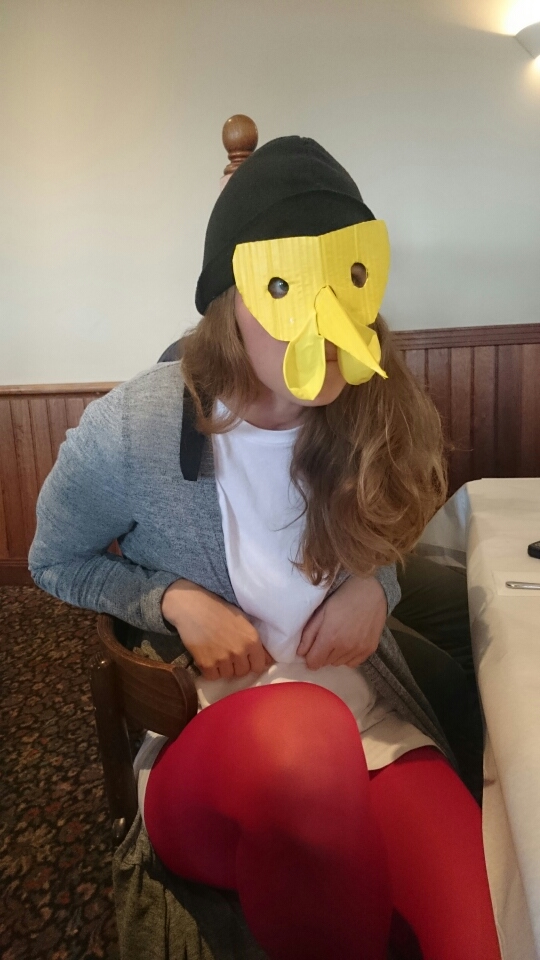
I completed a BSc Hons (Zoology and Marine Biology) at the University of Western Australia in 2013, after which I spent some time travelling and working as an environmental scientist for a consulting company (RPS Environment). I also worked at the Western Australian Museum from 2011-2015 engaging children and adults in scientific programs. I moved to Tasmania in 2015 to start a PhD project with Erik Wapstra and Geoff While, attracted by the long-term dataset on the model species Carinascincus ocellatus and the opportunity to engage in field work, experimentation and lab work. My project used long-term datasets and experimental methods to a) assess age-specific reproductive success in this species and explore lifetime reproductive output within and between populations, b) examine telomere length and telomerase activity in C. ocellatus and c) determine whether these characteristics are related to reproductive senescence in the species. Following completion of my PhD I took up a post-doctoral position within the BEER group continuing to explore the causes and consequences of telomere dynamics.
Email: Luisa.Fitzpatrick@utas.edu.au
Paul Saunders
“Some of the most informative new observation on vertebrate sex and sex chromosomes have come from animals that are far from being models” Jennifer A. Marshall Graves, 2008.
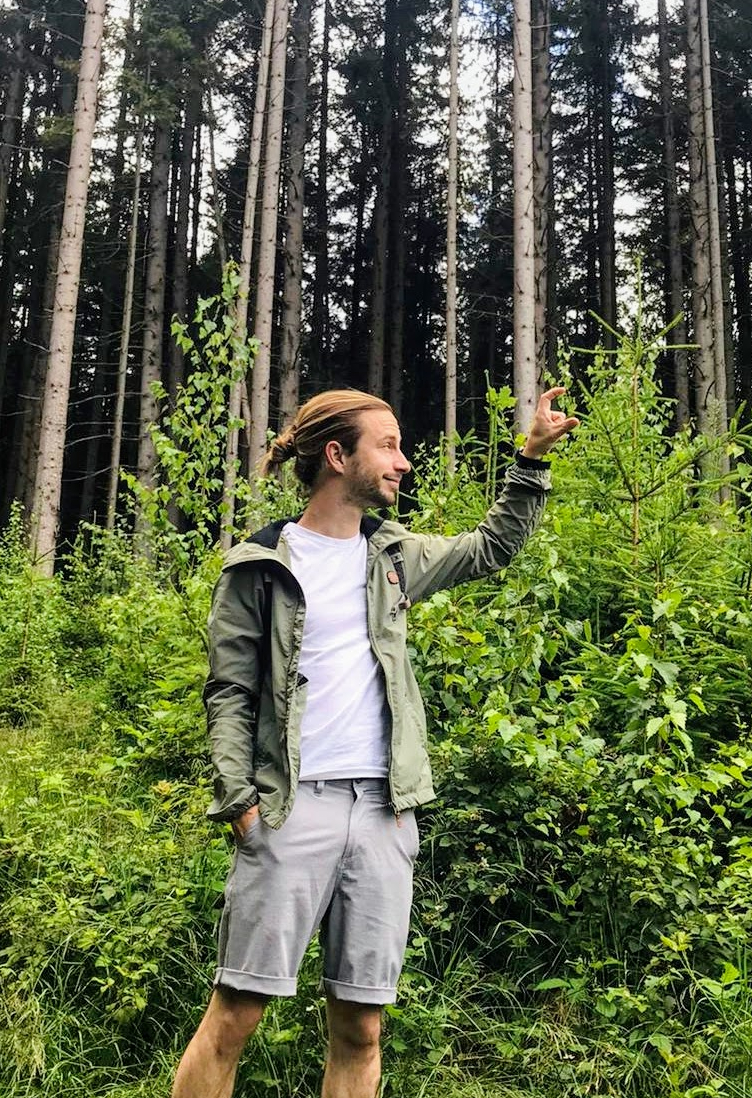
I’m a French evolutionary biologist interested in the evolution of sex determination and sex chromosomes. I have a strong interest in species/taxa exhibiting out of the ordinary sex determining systems and/or unusual rates of changes in their sex determining mechanisms.
Over the last few years, my work has focused on the study of the causes and consequences of the evolution of the weird sex determination system of the African pygmy mouse Mus minutoides (U. of Montpellier, FR). I’ve also done some theoretical work to shed light on the forces involved in sex chromosome turnover, and especially the high turnover rates observed in taxa like Ranidae frogs (U. of Lausanne, CH).
My work at UTAS (in collaboration with Chris Burridge, Erik Wapstra, Tariq Ezaz from U. of Canberra, and Oleg Simakov from U. of Vienna, AUT) will focus on the evolutionary genomics of sex chromosomes in the spotted snow skink Carinascincus ocellatus, which has a mixed sex determination system (sex chromosomes + temperature override) and exhibits between-population variation in sex determination.
Email: paul.saunders@utas.edu.au
PhD Students
Erin Bok
Project Title: Forty spotted pardalote and white gum: joining the spots to save an Australian endangered bird species

I completed a Bachelor of Science at UTAS majoring in Plant Science & Zoology (2018). From here I completed my Honours looking at the hydraulic properties of Endohydric Mosses in Tasmania (2019). Although I knew I would make my way back to UTAS for a PhD at some stage (Dr Bok has a particularly nice ring to it), an opportunity came knocking sooner than expected from Julianne O’Reilly-Wapstra, Geoff While & Peter Harrison. This project presented an excellent opportunity to develop essential skills for a field ecologist role (dream job) and utilise my knowledge in both plant science and zoology. My project will investigate what drives variation, availability and quality of food for the forty-spotted pardalote (Pardalotus quadragintus). The forty-spotted pardalote relies on manna, a sugary exudate produced by white gum (Eucalyptus viminalis), and actively stimulates manna production through its mining behaviours. I will investigate the relationship between the forty-spotted pardalote and E. viminalis and its effects on other species and communities more broadly. The outcomes of this research will provide vital information on the ecological and evolutionary relationships between the forty-spotted pardalote and E. viminalis and directly inform conservation strategies to aid its survival and associated communities under changing environmental conditions.
Publications
Email: erin.bok@utas.edu.au
Jamie Grimsdale
Project Title: Quantifying risks and the scale of the mammal browsing problem to inform technological solutions
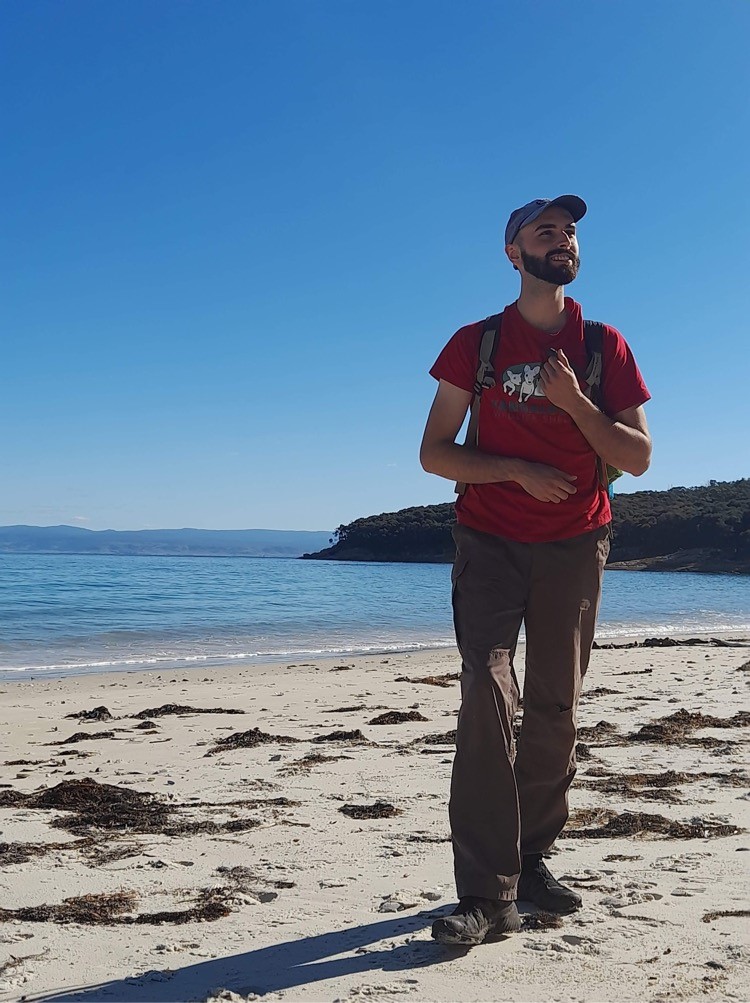
I am from Shropshire in the UK and after completing my integrated Masters in Natural Sciences at the University of Southampton I left home to travel Australia. Two and a half years later, a significant portion spent in Tasmania, I am taking the next step in my scientific career by taking up a PhD position within the BEER Group and the ARC Centre for Forest Value working with Julianne O’Reilly-Wapstra and Geoff While.
My research centers on developing informed browsing management procedures for the forestry sector and will have 2 main components: 1) Using long term operational browsing data to progress previous attempts to develop risk models and generate new predictive models for browsing risk based on site selection and environmental variables. This will enable better targeting of control measures to high-risk areas. 2) Development of a detection system using a long range, low power (LoRa) network to assess the scale of mammalian browsing. The aim being to shift away from labour intensive manual assessments to a remote system better suited for isolated forest locations and to help inform the future development of novel deterrent devices.
Publications
Email: james.grimsdale@utas.edu.au
Bethan Govier
Project Title: The developmental mediators of social interactions under different social contexts.
I have had a somewhat unconventional journey to starting my PhD but have always known it would centre around lizards! I completed my BSc (Hons) in animal behaviour and welfare in 2015 and went on to work as a reptile keeper at Jersey Zoo. I then completed my Master’s in wildlife conservation with my thesis focused on behavioural variation in sand lizards that were destined for reintroduction across Southern England. Following this I spent a few feral years working as a warden of Round Island, an uninhabited nature reserve off the north coast of Mauritius before covid had me returning to England and working as an ice cream maker and a learning assistant in a children’s nursery… equally as wild! I’m now thrilled at the chance to utilise the skills I have learnt along the way to complete my PhD under the supervision of Martin Whiting and Geoff While.
My PhD will firstly focus on how the early social environment influences subsequent social behaviour, personality and cognition. For this work I will be working on the Egernia group of lizards. A second aspect of my PhD will focus on exploring the behavioural implications of sex reversal in the bearded dragon, Pogona vitticeps.
Publications
Email: bethan.govier@hdr.mq.edu.au
Alexander Hansson
Project Title: Disentangling the predictive powers of paternal and maternal telomere effects on offspring life and death.

I am from northern Sweden, growing up enjoying a seasonal temperature variation between negative 30 and 30 degrees Celsius. I moved to southern Sweden in 2012 to begin my biology studies, resulting in a BSc in biology from Linnaeus University (2012-2015) and a MSc in evolutionary biology from the University of Gothenburg (2015-2017). During the latter I met Mats Olsson and did my thesis project in his lab group where I got introduced to an Australian lizard while working on an imported lab population of painted dragons. After my Master’s, and during the search for a PhD, I worked as a high-school music teacher.
I am now a PhD student at UTas and will work on a double system, studying spotted snow skinks in Tasmania and sand lizards in Sweden. I will examine the intricate relationships between life history and telomere dynamics, and I have a particular interest in what determines telomere length at birth.
Email: Alexander.Hansson@utas.edu.au
Helena Valverde Iglesias
Project Title: Disentangling parental care.
’m a neurobiologist interested in how the brain works and what determines behaviour. I have always enjoyed being surrounded by nature, so when the time came, I decided to study a BSc in Biology in my home country, Spain, and fell in love with neuroscience. I also realised that by understanding behaviour we could help biodiversity conservation, so then I completed my MSc in Neuroscience and Behaviour Biology. Following this, I spent another year specializing in Biomedical Research (MSc) in order to refine my lab skills. Covid made me reinvent myself and rediscover other ability that I acquired during my adolescence: the guitar. After spending some years working as a guitar teacher in the UK and the Netherlands, I landed in Tasmania. Here I have found a home and also the opportunity to continue my path as a researcher.
The aim of my PhD will be trying to understand the mechanisms underlying parental care, focusing in particular on the brain and the hormones that regulate this behaviour. My thesis will be carried out under the supervision of Geoff While, Benjamin Halliwell and Erik Wapstra (University of Tasmania), but also in collaboration with Martin Whiting (Macquarie University, Sydney).
Publications
Email: helena.valverdeiglesias@utas.edu.au
Alison Hayman
Project Title: Deer in forestry landscape – Autonomous detection and deterrent devices for browsing management in forested landscapes.

I grew-up in a bushwalking family, this early exposure to the outdoors developed a strong interest in nature. The first university information session I ever attended was for an ecological degree, dissuaded from this career choice due to employment prospects I studied economics, focusing on environmental economics. My career hence took a different path for some time, before returning to study completing several post-graduate environmental courses, notably at Southern Cross University, and more recently a Master of Environmental Management at Charles Sturt University. I have also worked as an environmental scientist and as a cartographer.
I am now in the fortunate position of studying a PhD which encompasses monitoring of wild deer and their management. My off-campus PhD research in north east Victoria will develop and test autonomous detection and deterrent devises for browsing management in forested landscapes, focusing on deer. Specifically, robotics-inspired automated detection devices shall be developed and tested (e.g. thermal and colour cameras, acoustics) in coupes. Novel autonomous deterrent devices shall then be developed and pilot tested in browsed landscapes. This project is a collaborative project with forestry industry groups, namely Hancock Victorian Plantations and research partners.
Publications
Email: alison.hayman@utas.edu.au
Jai Lake
Project title: How to be social: understanding the mechanisms underpinning complex sociality
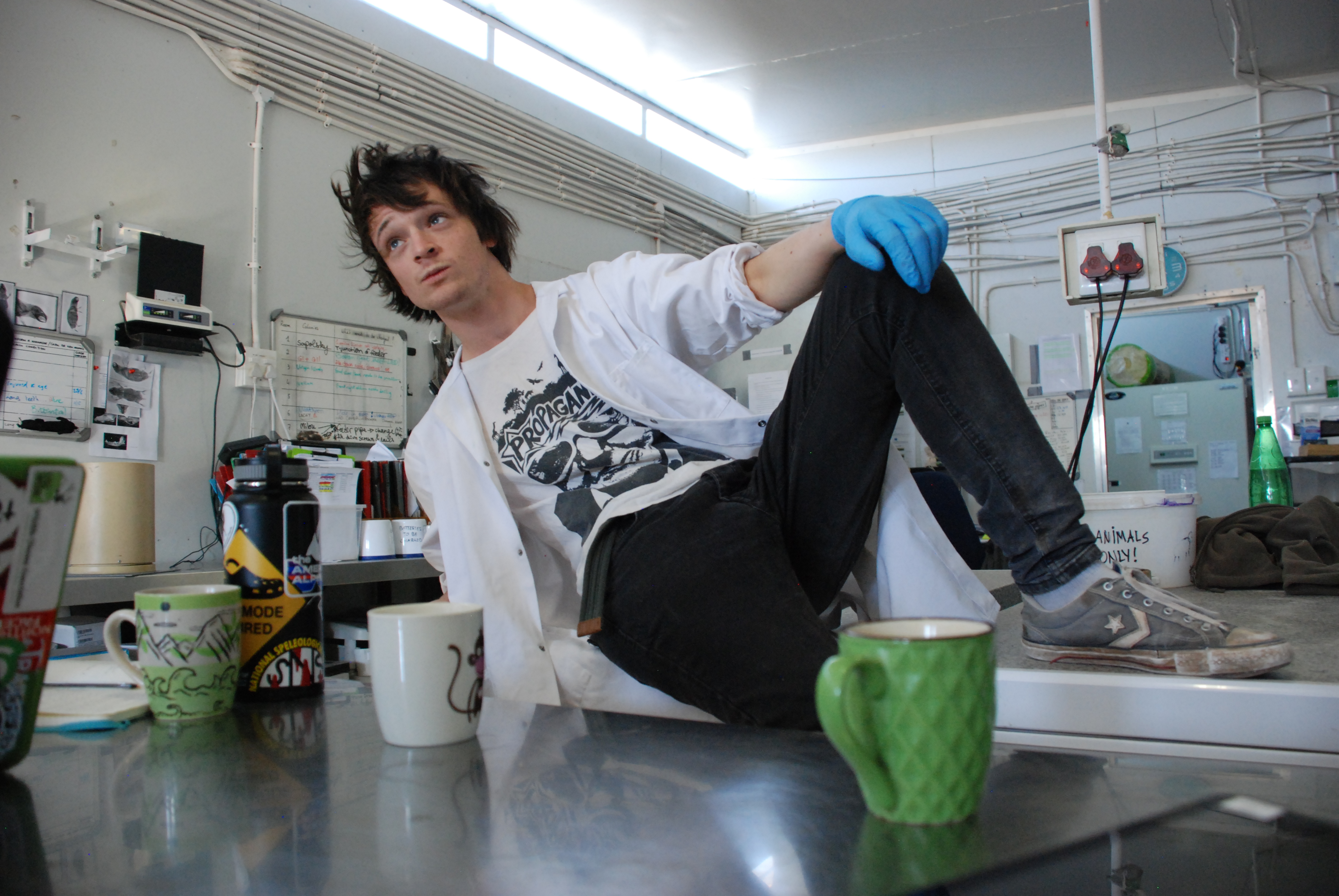
I’ve wanted to work with animals for as long as I can remember, likely due to a childhood spent watching David Attenborough and Steve Irwin. I followed this passion and completed an integrated Masters’s degree in Zoology at the University of Bristol, UK, during which time I became increasingly interested in animal behaviour and social systems. After my degree, I worked on a variety of projects looking at aspects of sociality, including social learning in chickens, cooperation in molerats, and communication in chimpanzees. I am now a PhD student with the Lizard Lab (Macquarie University) working under the supervision of Martin Whiting and Geoff While. The aim of my project will be to understand how social systems are formed and maintained, using a combination of behavioral ecology and neuroscience techniques. I will be specifically looking at the Egernia group of skinks, which display a wide range of social systems and are therefore an ideal model for investigating the evolution of sociality. I’m excited to begin working on a system that is new to me, and to live in a country with some sunshine.
Publications
Email: jailake2@gmail.com
Yorick Lambreghts
Project title: Unraveling the co-evolutionary dynamics between kin recognition and social complexity
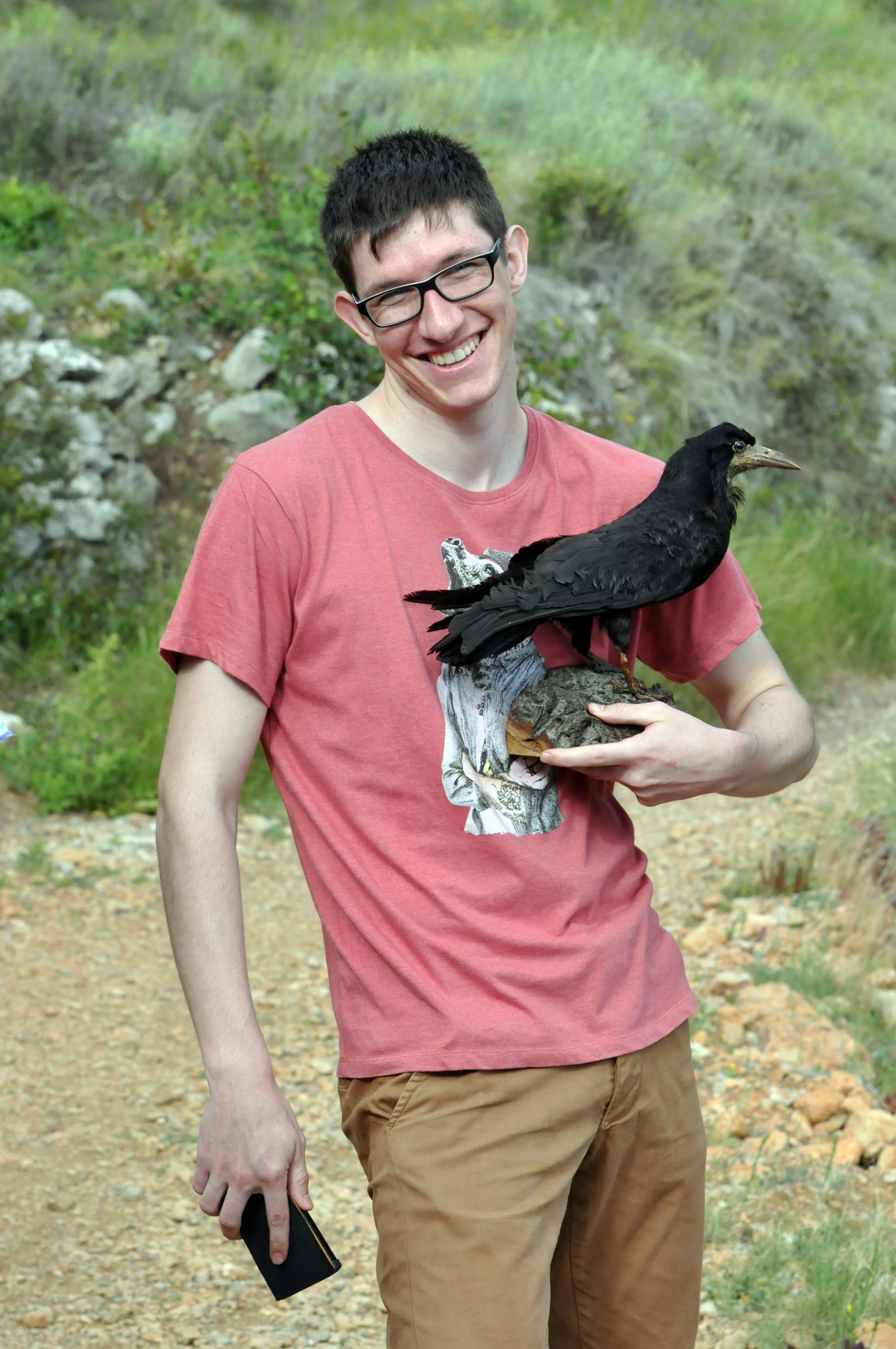
I completed my MSc in Behavioural and Evolutionary Biology at the University of Antwerp (Belgium) in 2017. I have always been especially interested in animal behaviour, which led me to mainly participate in projects on personality related behavioural traits in birds and lizards. While I liked working with birds, I have come to prefer lizards because they cannot fly away.
For my PhD I will investigate the early evolution of social groups with a particular interest in the role of kin recognition. As a model system I will use reproductively bimodal species (females of the same species are either egg-laying or live-bearing depending on the population) such as Saiphos equalis and Lerista bougainvillii in addition to family-living lizards of the Egernia group. Specifically, I will look at the evolution of kin recognition itself, its importance in the early evolution of sociality and how it becomes refined as social systems become increasingly complex. My PhD will be undertaken in collaboration with Martin Whiting (Macquarie University) and Camilla Whittington (University of Sydney).
Email: Yorick.Lambreghts@utas.edu.au
Deirdre Merry
Project title: Unearthing the mechanisms of asynchronous birth
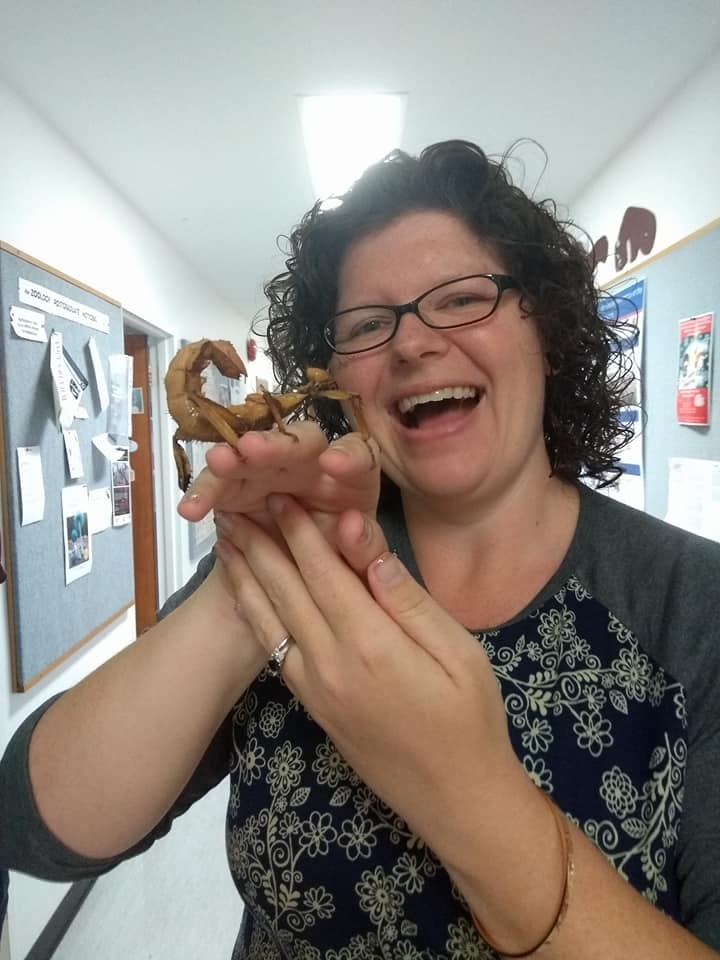
I am a PhD candidate within the BEER group working under the supervision of Geoff, Erik and Dr Camilla Whittington, from the University of Sydney. I, like many others, started my BSc in Zoology at UTAS with aspirations of becoming a zookeeper. I decided early on, however, that research was more my style and somehow found my way into the world of reptiles. I have always been fascinated by the stranger aspects of reproductive physiology and found an opportunity here to combine this with my growing interest in reptiles (lizards to be more precise)! Specifically, my research focuses on a group of live bearing skinks, Egernia skinks. Interestingly, some members of this group complete the act of birth over several days, giving birth to one offspring while retaining the remaining fully developed offspring within the reproductive tract over an extended period. As these species are litter-bearing, this suggests some form of fine-scale control over both the timing and processes of birth. My honours project used experimental and molecular techniques to examine uterine responsiveness to nonapeptide hormones and evaluate relative expression of a nonapeptide receptor gene in the same regions. My PhD project will continue this line of investigation, looking at the underlying physiological mechanisms of birth and how they have been co-opted by members of the Egernia group to facilitate such fine-scale control of birth. Results from my study will provide insight into not only a unique form of viviparous reproduction, but also the evolution of live-birth itself.
Email: deirdre.merry@utas.edu.au
Carles Ferre Ortega
Project Title: Evolutionary genomics of sex chromosomes of the spotted snow skink Carinascincus oculleatus
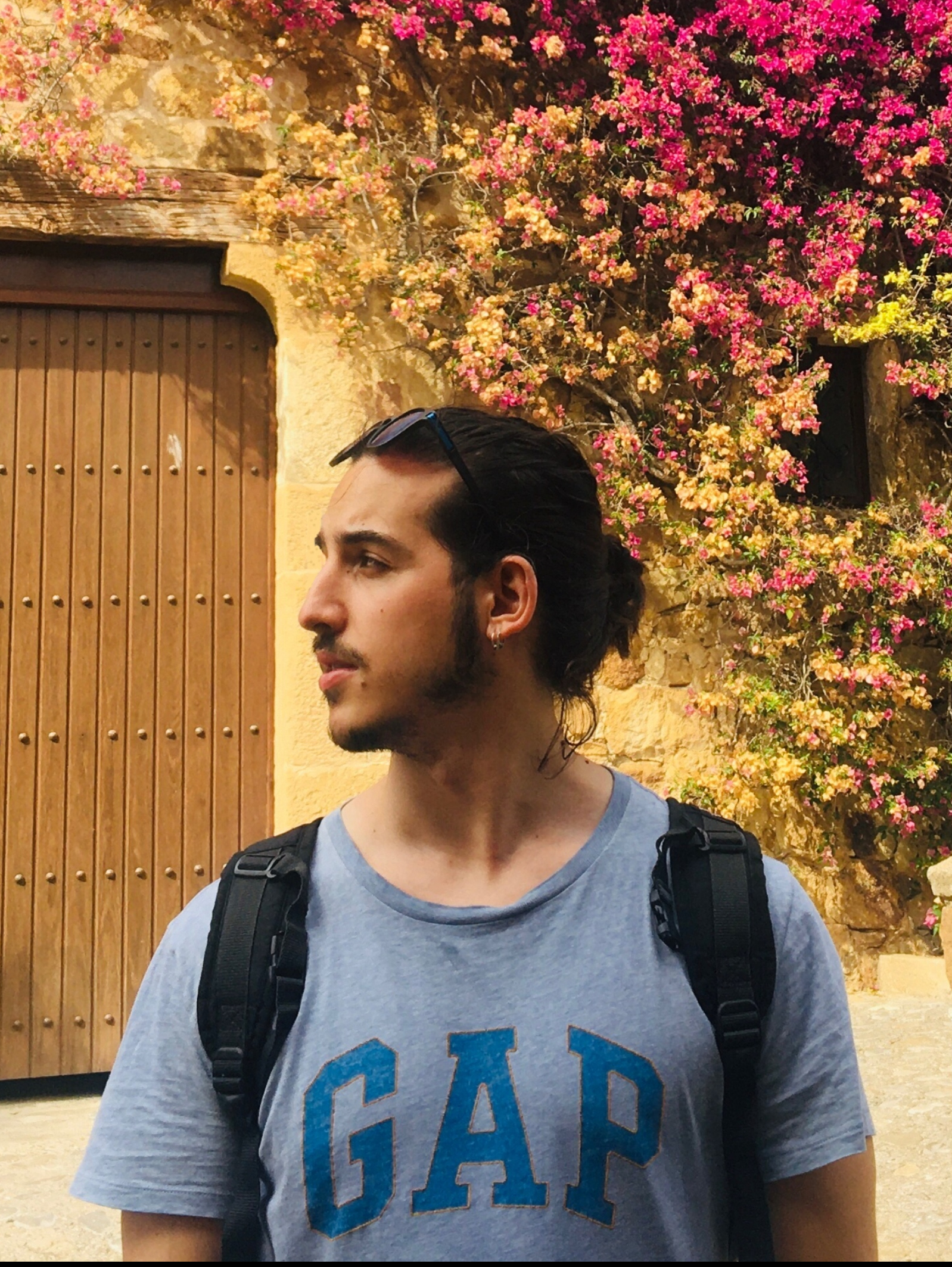
Since young, I have been interested in understanding how the natural world functions. That is why, in 2014 I started my BSc in Biology at the University of Barcelona, in my home city. My interest during the degree mostly focused on ecology, but it was not until I started my thesis during an academic exchange with the University of Vienna that I first learnt about genomics and the importance of bioinformatics. My project thesis was trying to understand the different plant morphologies found in Heliosperma pusillum from an epigenetic point of view. After this fantastic experience in Austria, I decided to enrol in 2019 with my MSc in Environmental and Evolutionary Genomics at Queen Mary University of London. That fulfil my interests in ecology but at the same time, allowed me to learn more about genomics and bioinformatics. My master’s thesis was also based on these interests, analysing the epigenomic response of the three-spined stickleback to parasitic infections.
This long academic pathway has allowed me to join the BEER group at UTAS in 2021, where I will be researching the evolutionary genomics of sex chromosomes of the spotted snow skink Carinascincus ocellatus. This intriguing species seems to have a sex ratio that fluctuates depending on annual temperature, but with a variable effect according to altitude. We suggest that might be a consequence of different sex chromosome morphologies along with different populations.
Publications
Email: carles.ferreortega@utas.edu.au
Victoria Russell
Project title: The Evolutionary Origins of Family Living
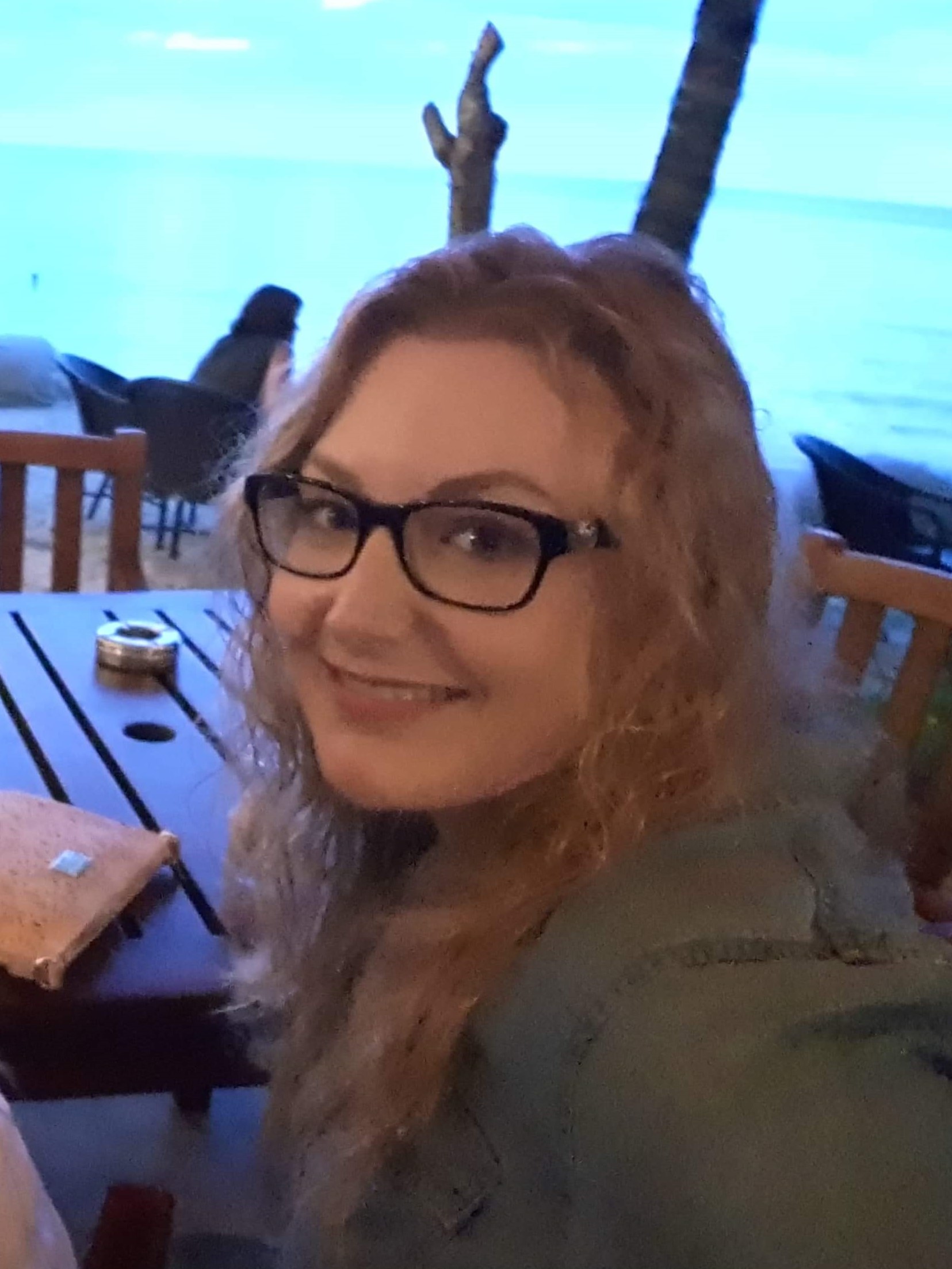
I am a PhD student within the BEER group, working under the supervision of Geoff, Erik and Associate Professor Martin Whiting from Macquarie. I completed my undergraduate degree and BSc Hons year at the University of Tasmania looking at how genetic and environmental factors influence developmental stability in the wall lizard.
I am interested broadly in understanding the factors that mediated the early origins and maintenance of social structures. For my PhD I am working on the Egernia group, in particular focusing on the three types of social structures found within the group: solitary species, facultative social species and obligate social species. My focal topic will ask how key social traits, such as maternal aggression, social learning and kin recognition have been refined in social species relative to closely related solitary species.
Publications
Email: victoria.russell@utas.edu.au
Honours Students
Kate McMahon
Project title: Olfactory communication in the bare-nosed wombat (Vombatus ursinus)
An understanding of communication is vital to the study of animal ecology due to the influence it has on predator avoidance, foraging and mate-choice, which all play a role in survival and reproduction. Bare-nosed wombats (Vombatus ursinus) use olfactory communication (communication via smell and taste). It has been suggested that this communication is mediated primarily through the use of scats. Indeed, there have been many descriptive accounts of wombat scats being deposited on prominent aspects of the landscape in aggregations. However, the role of olfaction in wombats, and specifically scat based communication, has not yet been formally tested. Kates project will address this. First, Kate will determine whether wombats possess distinct olfactory organs as well as distinct, individual, chemical profiles (pheromones) in their scats. Second, Kate will explore whether wombats position and aggregate scats at prominent points within their home range to maximize visual and olfactory communication signals. Finally, Kate will explore whether wombats respond to changes in the olfactory signals (presence of foreign individuals) and new opportunities to use olfactory communication (defecate on introduced prominent points) within their home-range.
Email: kate.mcmahon@utas.edu.au

